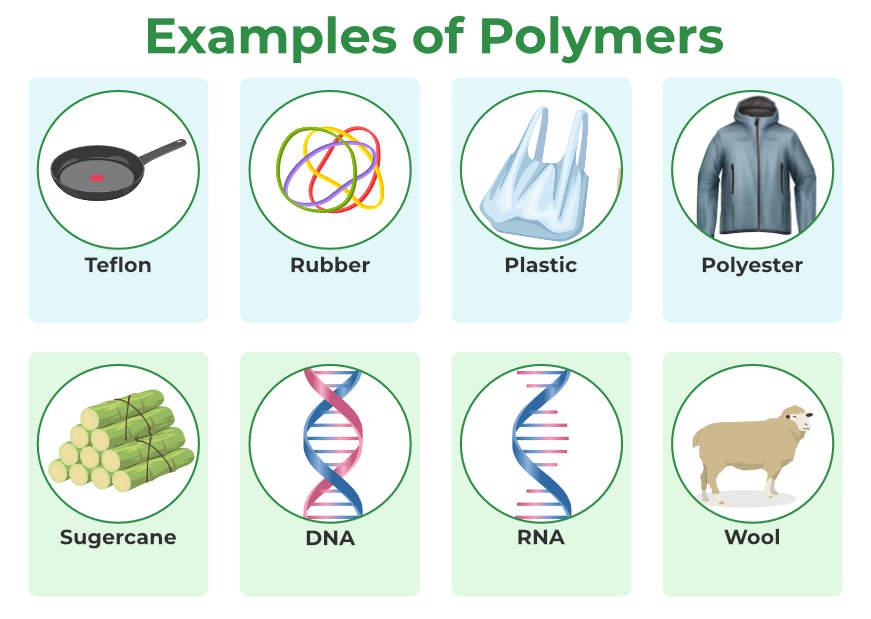Sustainable Polymers: Eco-Friendly Solutions for the Future
Sustainable Polymers: Eco-Friendly Solutions for the Future
Blog Article
Exploring the Varied Applications and Advantages of Polymers in Different Industries
Polymers, with their varied array of residential properties and capabilities, have actually ended up being indispensable in different sectors, each gaining unique advantages from their application. From boosting safety and security and efficiency in the automotive field to changing medical tools in the healthcare sector, polymers play a critical duty.
Automotive Industry Applications
Polymers play an essential duty in boosting the efficiency and longevity of different elements within the automotive sector. One famous usage of polymers in the vehicle sector is in the production of lightweight parts.

Medical Care Sector Benefits
In different medical care applications, the benefits of making use of polymers are extensively identified for their diverse range of helpful residential or commercial properties. Polymers play an essential function in the health care industry due to their versatility, biocompatibility, and cost-effectiveness. One of the key advantages of polymers in health care is their capability to be customized to particular requirements, such as adaptability, longevity, and biodegradability, making them suitable for a vast array of medical applications.
Polymer-based materials are thoroughly utilized in medical tools, such as catheters, implants, prosthetics, and medicine distribution systems, due to their biocompatibility and ability to simulate natural tissues. These products can reduce the danger of allergies or beings rejected, enhancing individual security and results. Furthermore, polymers are light-weight, making them ideal for wearable clinical tools and making certain person convenience.
In addition, polymers allow the advancement of cutting-edge treatment techniques, such as hydrogels for tissue design and nanocomposites for targeted medicine delivery. Their convenience of processing and sanitation makes them important for maintaining high requirements of health in healthcare settings. In general, the varied benefits of polymers add considerably to advancements in medical innovation and individual treatment.
Ecological Benefits of Polymers

Moreover, polymers can add to power cost savings because next of their lightweight nature. In industries such as transportation, lightweight polymer products can aid minimize fuel usage and greenhouse gas exhausts. Additionally, polymers can make it possible for the advancement of energy-efficient this link items such as insulation materials that enhance energy conservation in buildings.
Moreover, polymers play a crucial duty in minimizing water air pollution. The use of polymer-based filtration systems can effectively eliminate pollutants and impurities from wastewater, guarding water resources and communities. On the whole, the ecological advantages of polymers make them important possessions in promoting sustainability and eco-friendly techniques across different markets.
Polymers in Electronics and Technology
Considering the boosting need for cutting-edge and lasting remedies in contemporary sectors, the assimilation of advanced polymer technologies in the world of electronics and modern technology like it has arised as a pivotal method for driving efficiency and performance. Polymers have revolutionized the electronic devices industry by enabling the production of lighter, more adaptable, and long lasting electronic tools. From smart devices to medical gadgets, polymers play a vital function in boosting item design and functionality.
One considerable advantage of polymers in electronic devices is their insulating buildings, which assist safeguard delicate electronic elements from environmental factors and electric interference. Additionally, polymers are essential in the growth of flexible display screens, wearable modern technology, and published electronics, supplying unlimited possibilities for producing smart and interconnected gadgets.
Moreover, the usage of polymers in digital product packaging has actually caused innovations in miniaturization and thermal management, enhancing the general efficiency and dependability of electronic systems. As modern technology remains to develop, the flexibility and versatility of polymers will undoubtedly drive further innovation in the electronics sector, forming the future of modern technology.
Duty of Polymers in Construction and Framework
Polymers supply various benefits in the building market due to their flexibility, resilience, and cost-effectiveness. One vital duty of polymers in building and construction is their usage in finishings and sealers, providing defense against ecological aspects such as wetness, UV radiation, and rust.
Moreover, polymers play an important duty in sustainable building and construction practices by making it possible for the growth of energy-efficient frameworks. Shielding products made from polymers assist manage indoor temperature levels, minimizing the need for heating and cooling down systems and eventually decreasing energy intake. The usage of polymer-based compounds in facilities tasks such as bridges and roads enhances their longevity and reduces upkeep expenses. On the whole, the incorporation of polymers in building and infrastructure displays their substantial effect on modern design practices.
Conclusion
To conclude, polymers play a vital duty in numerous markets such as vehicle, healthcare, environmental, electronics, and building. Their functional buildings make them important in developing innovative options and items. From enhancing gas efficiency in automobiles to boosting medical devices, polymers provide many benefits. In addition, their influence on minimizing waste and promoting sustainability highlights their relevance in modern-day applications. The extensive use polymers shows their considerable contribution to progressing innovation and improving top quality of life.
Report this page